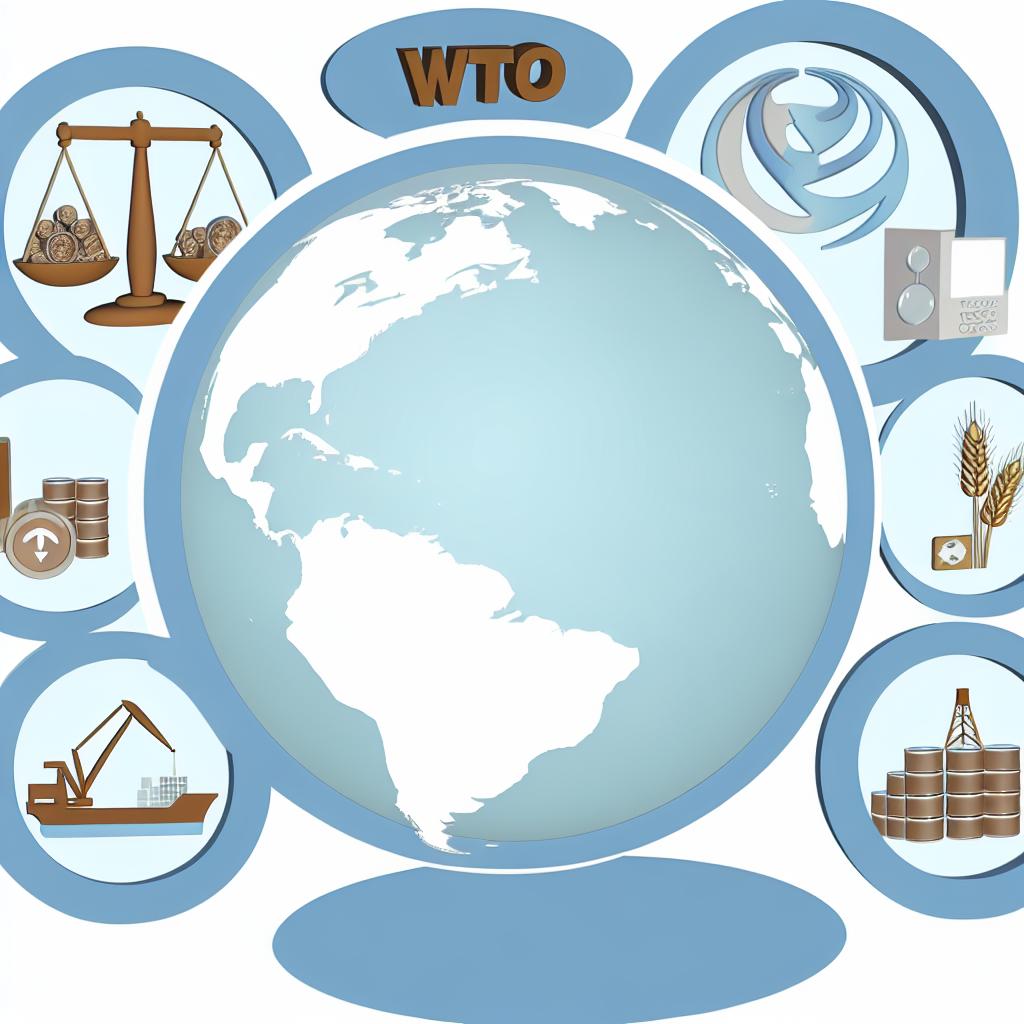Understanding the World Trade Organization (WTO)
The World Trade Organization (WTO) is a pivotal international body that governs and facilitates trade among nations. Established in 1995, its core objective is the smooth, predictable, and free flow of trade, crucial for global economic stability. By offering a platform where member countries can negotiate and settle trade disputes, the WTO not only contributes to maintaining a balanced trading environment but also enhances collaboration among nations.
The Role of the WTO
At the heart of the WTO’s operations are its responsibilities to oversee global trade agreements and ensure compliance with established rules among member nations. It serves several critical functions in the realm of international trade:
Trade Negotiations: The WTO is central to hosting rounds of negotiations aimed at creating new trade agreements and updating existing ones. By promoting the liberalization of trade, the organization seeks to facilitate a more open and integrated global market.
Dispute Resolution: A structured process for resolving disputes is one of the WTO’s notable features. When disagreements over trade agreements emerge, the WTO provides a transparent and legally binding framework to address such issues, thereby reducing potential conflicts.
Trade Monitoring: Ensuring national trade policies are in sync with global agreements is another key role of the WTO. This monitoring helps maintain fair competition and integrity in international markets, benefiting all member nations.
Fundamental Principles
The WTO’s effectiveness hinges on several fundamental principles designed to cultivate a fairer trading environment:
Non-Discrimination: Central to this principle is the Most-Favored-Nation (MFN) concept, which requires countries to treat all WTO members equally. If a country provides a trade advantage to one member, it must ensure that the same benefit is extended to all other members.
Reciprocity: This encourages member countries to offer comparable benefits in return for the benefits they receive, thus promoting mutual advantages across the trading system.
Transparency: To ensure predictability, member countries are obliged to publish their trade regulations and practices, thereby facilitating greater understanding and collaboration among them.
Trade Standards in the WTO Framework
Trade standards are integral to the global trading system and affect various facets of international commerce under the WTO’s umbrella. They are crucial in establishing rules that enhance compatibility and fairness in trade.
Technical Barriers to Trade (TBT)
The WTO’s Technical Barriers to Trade (TBT) Agreement addresses technical regulations, standards, and conformity assessments. Its primary aim is to ensure these elements do not create unnecessary obstacles to international trade. Member countries are encouraged to base their national regulations on international standards and acknowledge each other’s procedures for assessing conformity.
The Purpose of TBT
The TBT agreement ensures that while member nations set regulations regarding product characteristics or related processes, these regulations do not unfairly hinder trade. In essence, it supports the objective of facilitating trade by ensuring that technical standards do not become disguised trade barriers.
Sanitary and Phytosanitary Measures (SPS)
Sanitary and Phytosanitary (SPS) measures play a crucial role in protecting human, animal, and plant health from risks arising from pests, diseases, and contaminants. The SPS Agreement allows countries to establish their national standards, provided these are scientifically justified. This agreement strives to prevent discrimination against countries with identical or similar conditions.
The Role and Impact of SPS
SPS measures are instrumental in international commerce, as they set the necessary conditions for safe trade. While allowing countries to exercise national standards for health protection, the agreement ensures these standards do not become tools for unjustified trade discrimination.
Importance of Trade Standards
Trade standards under the WTO framework hold immense importance in facilitating international commerce by ensuring compatibility and interoperability across diverse markets. They play a significant role in preventing the spread of diseases, safeguarding consumer interests, and enabling businesses to compete fairly in the global arena.
The Economic Significance of Standards
Standards facilitate seamless transactions by providing uniformity and assurance concerning product quality and safety. Moreover, they are instrumental in enhancing trust between trading partners, leading to a more reliable and streamlined global trade system.
Challenges and Opportunities
Despite having a robust framework, the WTO faces challenges such as varying national practices, protectionism, and the presence of non-tariff barriers. Each challenge represents potential hurdles that the organization must address to ensure fair trade. However, these challenges also bring forth opportunities. As trade agreements evolve continuously, there is a chance to enhance international cooperation and drive collective progress.
Adapting to Modern Trade Challenges
In an era of rapid globalization, evolving technologies and digital economies, the WTO must adapt its frameworks to accommodate contemporary trade challenges. This adaptation is essential for maintaining the relevance and effectiveness of its agreements and principles.
Conclusion
The WTO stands as a cornerstone institution in the global trade landscape. Through its guiding principles and strategic frameworks, it ensures that trade standards nurture rather than obstruct international commerce. By fostering an environment conducive to prosperity for all its members, the organization plays a critical part in the global economy. For more detailed insights into the structure and workings of the WTO, the organization’s official website offers comprehensive information and resources for interested parties.

